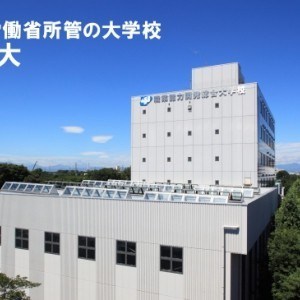Petroleum Engineering at London South Bank University is a comprehensive and industry-focused degree programme designed to prepare students for a successful career in the oil and gas sector. The programme combines fundamental engineering principles with specialized knowledge of the upstream oil industry, including exploration, drilling, reservoir management, and production techniques. Throughout the course, students will develop a solid understanding of geosciences, fluid mechanics, and drilling technology, enabling them to address complex challenges faced in the exploration and extraction of hydrocarbons.
The curriculum is structured to provide a blend of theoretical learning and practical skills. Students will engage in coursework covering topics such as petroleum geology, reservoir engineering, drilling operations, petrophysics, and production optimization. In addition, the programme emphasizes safety, environmental considerations, and sustainable practices, reflecting the industry’s evolving standards. Practical components include laboratory experiments, computer-based simulations, and field visits, offering real-world experience essential for professional competency.
London South Bank University’s strong links with industry partners ensure that the programme remains relevant to current market needs. Students benefit from guest lectures, industry seminars, and potential work placement opportunities, which facilitate networking and employment prospects upon graduation. The programme aims to equip graduates with the technical expertise, problem-solving skills, and professional knowledge needed to excel in roles such as petroleum engineers, drilling engineers, reservoir engineers, and other specialized positions within the energy sector.
Graduates of this programme will also find their skills applicable in related fields like environmental consultancy, renewable energy adaptation, and geoscience research. With a focus on innovation and sustainability, Petroleum Engineering at LSBU prepares students to contribute effectively to the global energy industry’s transition towards cleaner and more efficient energy sources. Upon completing this degree, students will be well-positioned to pursue further professional development or enter the workforce in a dynamic and evolving industry.
The Bachelor of Engineering in Petroleum Engineering at London South Bank University offers students a comprehensive education designed to prepare them for careers in the oil and gas industry. The program combines theoretical knowledge with practical skills, providing a thorough understanding of the principles of reservoir engineering, drilling engineering, production engineering, and petroleum geology. Throughout the course, students will explore essential topics such as fluid mechanics, thermodynamics, hydrocarbon recovery, and subsurface mapping, equipping them to analyze and solve complex engineering problems related to the exploration and extraction of petroleum resources.
The curriculum emphasizes the application of modern engineering tools and software, including simulation programs and data analysis techniques, to enhance decision-making processes in real-world scenarios. Students will have opportunities to develop their technical expertise through laboratory experiments, fieldwork, and industry placements, fostering a strong link between academic learning and professional practice. The program also covers key issues related to the environment, health and safety, and sustainable resource management, reflecting industry standards and societal expectations.
In addition to specialist technical modules, the degree includes modules on project management, economics, and communication skills to prepare graduates for leadership roles within multidisciplinary teams. The program encourages critical thinking, innovation, and ethical practice, ensuring students are well-rounded professionals capable of adapting to the evolving energy sector. Graduates of the Petroleum Engineering degree at LSBU are equipped to pursue careers in oil and gas companies, consulting firms, or research institutions, both in the UK and internationally. They will be prepared to contribute to the ongoing development of sustainable energy solutions, participating in the global effort to optimize the extraction and use of hydrocarbon resources responsibly.
Programme requirements for Petroleum Engineering at London South Bank University typically include academic prerequisites, language proficiency, and relevant experience. Applicants are usually expected to possess a minimum of A-level qualifications or equivalent, with a strong emphasis on subjects such as Mathematics, Physics, and Chemistry, to demonstrate their quantitative and scientific capabilities. For international students, proof of English language proficiency is required, often through IELTS or TOEFL scores; the IELTS requirement is generally a minimum of 6.0 overall, with at least 5.5 in each component, though specific score thresholds may vary depending on the applicant’s background.
Additionally, applicants with relevant work experience in the oil and gas industry or related fields may be considered favorably, especially if they can demonstrate their practical understanding of engineering principles and safety standards. The university encourages applicants to submit a personal statement highlighting their interest in Petroleum Engineering, motivation for studying at LSBU, and career aspirations within the energy sector.
Applicants are also advised to provide two academic references, ideally from previous lecturers or employers who can attest to their academic abilities and suitability for the program. The admission process may include an interview or assessment task to evaluate analytical skills and motivation. Candidates should ensure they meet the above criteria and submit all required documentation, including academic transcripts, English language test results, personal statement, and references, by the application deadline. It is recommended to check the official university website or contact the admissions office for the most current and detailed admission requirements, as these can be subject to change.
The financing studies for the Petroleum Engineering program at London South Bank University are designed to support students throughout their academic journey by providing a range of funding options and financial assistance. Domestic students may be eligible to apply for undergraduate loans from the UK government, such as Student Loans for tuition fees and maintenance loans to cover living expenses. These loans typically offer repayment plans based on income after graduation, making higher education more accessible. Additionally, the university offers scholarship opportunities and bursaries specifically for engineering students, which may be awarded based on academic merit or financial need. International students are advised to explore scholarships offered by the university, external organizations, or government sponsorship schemes available in their home countries.
Part-time work opportunities are also available on and around the campus, allowing students to gain practical experience and supplement their income during their studies. The university’s Careers Service provides guidance on part-time jobs, internships, and placements within the oil and gas industry, which can be valuable for developing industry contacts and enhancing employability upon graduation. Furthermore, students are encouraged to consider student credit cards or university payment plans to manage their tuition fees and living costs effectively. London South Bank University also offers financial advice and support services to help students budget, plan their finances, and navigate the complexities of funding their education.
Overall, the financing studies aim to ensure that students from diverse backgrounds have access to the necessary financial resources to successfully complete their Petroleum Engineering degrees, whether through government loans, scholarships, employment, or financial planning assistance.
Petroleum Engineering at London South Bank University provides students with a comprehensive education in the principles and practices associated with the exploration, extraction, and production of oil and gas. The program is designed to equip students with a strong foundation in core engineering disciplines, including mechanical, chemical, and civil engineering, while focusing on the specific challenges and technologies relevant to the petroleum industry. Throughout the course, students will explore topics such as reservoir engineering, drilling engineering, production engineering, and petrochemical processing, gaining both theoretical knowledge and practical skills through laboratory work, industry simulations, and field visits. The curriculum emphasizes sustainable practices and environmental considerations, ensuring graduates are prepared to address modern industry challenges responsibly. Students will also develop crucial competencies in numerical modeling, data analysis, and project management, enabling them to contribute effectively within multidisciplinary teams. The program benefits from strong links with industry partners and often incorporates guest lectures, industry projects, and internship opportunities, which enhance employability prospects upon graduation. London South Bank University’s modern facilities and focus on practical learning ensure students are well-prepared for careers in oil and gas companies, consultancy firms, and research institutions. The program aims to produce graduates who are capable of designing, managing, and optimizing petroleum extraction processes efficiently, safely, and sustainably. Upon completion, graduates may pursue roles such as reservoir engineer, drilling engineer, production engineer, or health, safety, and environmental specialist. The program typically lasts three years for full-time students and offers options for part-time study, accommodating a diverse range of students, including international applicants. Engaging with contemporary issues such as energy security, renewable energy integration, and carbon management, the program ensures that students are not only industry-ready but also prepared to contribute to innovative solutions in the evolving energy landscape.








